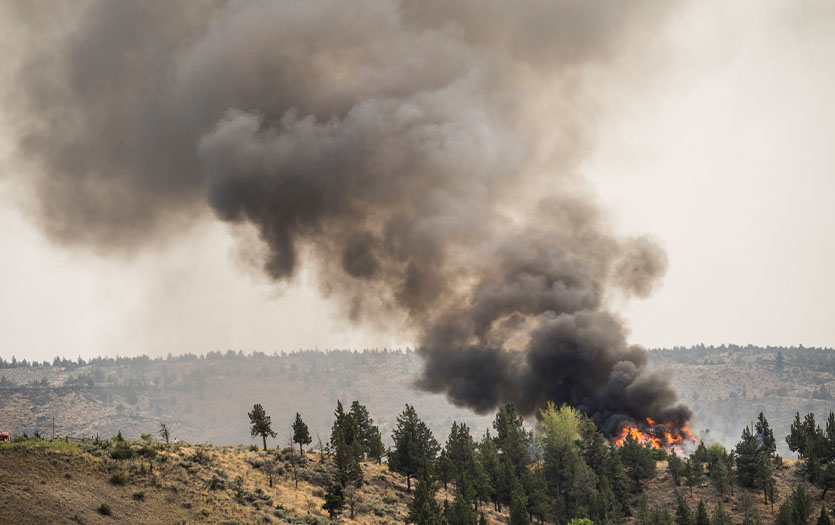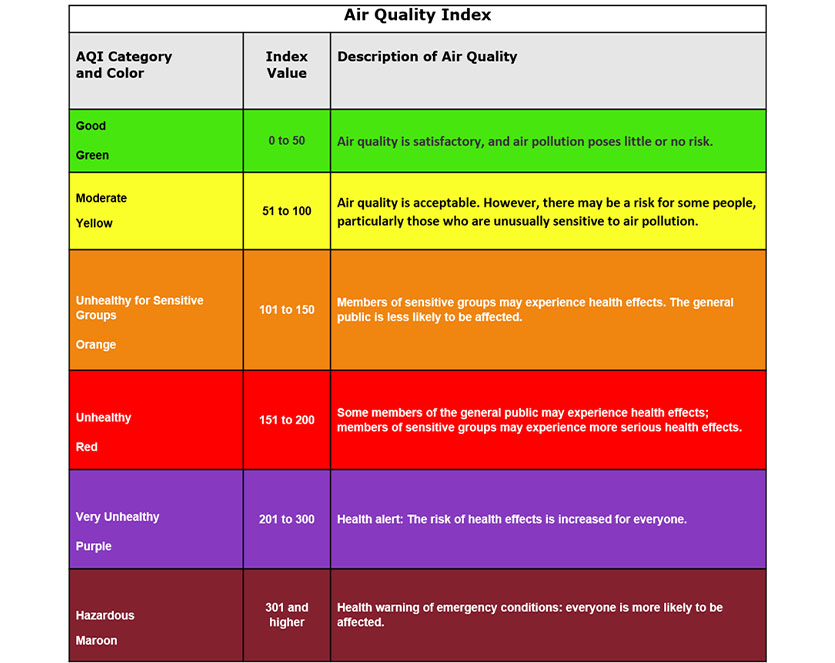
This post was written by Heather Willison, NP, PPG – Allergy, Asthma & Immunology.
It’s been hard to miss the haze in the sky over the last several weeks. This haziness is due to plumes of smoke traveling into the U.S. from wildfires burning in Canada. Since the beginning of 2023, Canada has recorded over 4,000 wildfires, destroying nearly 27 million acres of land. By mid-July there were still nearly 1,000 wildfires blazing.
Wildfires release significant amounts of carbon dioxide, black and brown carbon, and ozone precursors into the air. This results in a substantial increase in particulate matter polluting the air, and these particles are so large they are visible to the naked eye. Studies have shown wildfire smoke exposure can negatively impact both the cardiovascular and respiratory systems. This risk increases as the intensity of wildfire smoke increases.
What is the Air Quality Index?
The U.S. Environmental Protection Agency developed the Air Quality Index (see chart below) as a measuring tool to evaluate the five components of air quality: fine particles, ground-level ozone, sulfur dioxide, nitrogen dioxide and carbon monoxide.

Vulnerable groups
Those with asthma, chronic obstructive pulmonary disease (COPD) and heart disease, as well as children, pregnant women and the elderly, are more likely to be negatively impacted by poor air quality.
People with asthma or COPD are more likely to experience exacerbations when the small particles are inhaled. These particles can irritate the lungs, which then triggers coughing, shortness of breath, wheezing and/or chest tightness. Those with pre-existing heart conditions are at risk for heart failure, heart attacks and strokes when exposed to poor air quality. Poor air quality can also lead to less severe symptoms, such as fatigue, headaches, eye irritation, and sinus drainage and congestion.
How can I protect myself from hazardous air quality?
- When the Air Quality Index is 100+, those in sensitive groups should consider limiting time outdoors.
- Vigorous physical activity outdoors should be avoided.
- Keep windows and doors closed and run the air conditioning.
- Adhere to your treatment plan if you have been prescribed medications to treat your respiratory or heart condition.
- Rinsing the eyes and nasal passages with appropriate saline solutions can also be beneficial.
Unfortunately, we likely haven’t seen the end of the wildfire smoke in our area. The wildfire season typically extends well into the fall. Should you experience any negative effects from the wildfire smoke, please reach out to your primary care provider, or respiratory or heart specialist for guidance.



